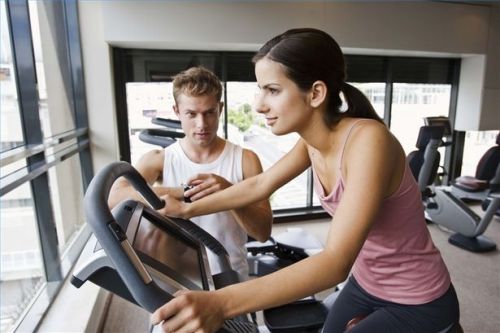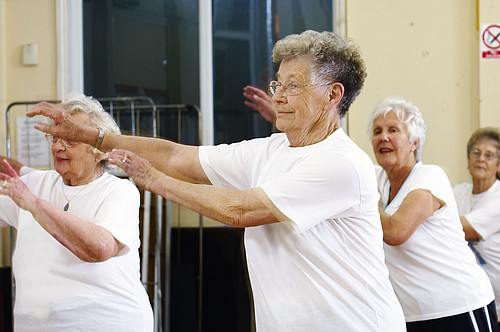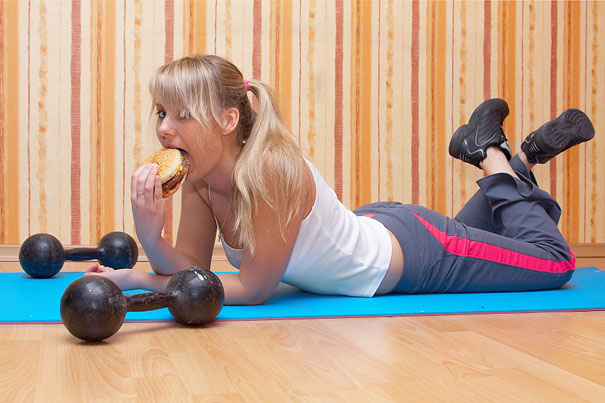
Angina is a kind of pain that develops in the chest of individuals when they exercise. This pain is not experienced by the individual when he takes rest. The development of this pain happens when the heart does not receive enough oxygen supply. Physical exertion in the form of exercises demands more oxygen supply for your heart and this leads to development of the pain. Narrow arteries or a block in the arteries can be important reasons for the insufficient oxygen supply to the heart. Normally, arteries become narrowed due to atherosclerosis or due to coronary heart disease. Cholesterol or calcium build up, plaque, fats are also responsible for the narrowing of the arteries and impairing the flow of blood. An in-depth knowledge about exercise tips which one can adopt to prevent angina is therefore very helpful for an individual.
Exercise tips to prevent angina
1. Set your pace under supervision

Individuals starting on a workout should pace themselves well under the supervision of their doctor. The pacing is so important because then the pain which may develop due to angina can be easily controlled by the individual himself. The pain will not over power him and minimize his efforts at exercises for the betterment of his health. According to many doctors around the world, individuals with angina usually develop pain when he starts on the workout. However, they opine that stopping is not the only solution. Individuals with angina will always experience this problem when they will embark on exercises, but stopping will not help their heart to improve. A better way out of this problem is by easing the workout and slowing the pace of the workout and slowly let your heart become strong with each passing day.
2. Warming up before the exercise

Ten minutes of a warming up session before an individual starts the exercise can help prevent angina. Warming up also helps an individual in working out longer and keeping an angina attack at bay. The warm up will make your heart attuned with the increased heart beat recommended for your age. This will prevent an angina attack as the heart will be made ready before you start the exercise. Starting with a low intensity exercise like stretching and gradually increase the level of intensity to exercises like walking. This will help individuals in preventing angina and also in reducing the cholesterol build ups in the arteries.
3. Duration of the exercise sessions

Recent research conducted shows that an individual should exercise for a minimum duration of about thirty minutes five days a week to derive the maximum benefits for his heart. Many individuals will argue that this will make them an easy victim of an angina attack, but there are ways in which you can do the exercise and yet not become a victim of the disease. Brisk walking, biking, swimming exercises are those physical activities which make your heart beat faster and as a result the excess cholesterol and fat build ups get reduced. Many may question that the increased heart beats may result in angina. The twist comes here. An individual should begin these exercises at a low intensity to prevent an angina attack. This will not only help him to continue with the exercise schedule but also help his heart to become more healthy and fit than before. The exercise session can also be broken down into ten or fifteen minutes sessions if an individual plans to exercise for thirty minutes.
4. Stop immediately if you experience angina

During exercising, muscles in your body require more oxygen. This is derived from the respiratory process in which oxygen is inhaled. Oxygen is transported in the blood and the blood flow is increased thereby to meet the needs of the muscles. However, individuals with artery blockages experience pain in the chest when the rate of blood pumped increases and the passage of the artery been short is not able to transport the blood adequately. In such situations, the individual should immediately stop the exercise and sit down and relax. The individual should resume the exercise only after the symptoms of the chest pain has been totally reduced. Otherwise, it may trigger off another chest pain.
5. Do not exercise after meals

It is advisable not to exercise after meals. A large meal will make your stomach full. And exercising with your stomach full will be tiring and may trigger off an angina attack. During eating, the heart has to provide greater amounts of blood to the rest of the body as the heart beat also increases. People with heart disease will have a lesser blood flow and exercising in such state can lead to an angina attack. Therefore, it is always better to exercise in the morning on an empty stomach. That will put less pressure on your heart and you will be able to exercise well.
6. Be consistent with the exercise program you choose

Consistency is very important for exercises. An individual should continue the exercises religiously as that will help his heart to become strong and will avoid complications of triggering an angina attack. The consistent practice of the exercises will make your heart get accustomed to the stress however small it may be. But if you do not practice regularly and work out in a haphazard manner, the sudden strain of the exercise can lead to a pain in the chest, resulting in angina. Therefore, an individual can avoid the pain by following the exercise schedule consistently and working out for the betterment of the health of their heart.
The best way to prevent angina is by regulating the type of food that an individual consumes. The food he consumes leads to cholesterol formation and blocking of the arteries. Therefore attention should be paid to the food that a person consumes. This will help in maintaining a good and healthy heart. Moreover an individual with heart problems should avoid stress in their daily lives. Though it is tough to avoid, they should try to distress themselves so as to avoid creating pressure on the heart. These changes in lifestyle and food habits can help an individual prevent an angina attack.




